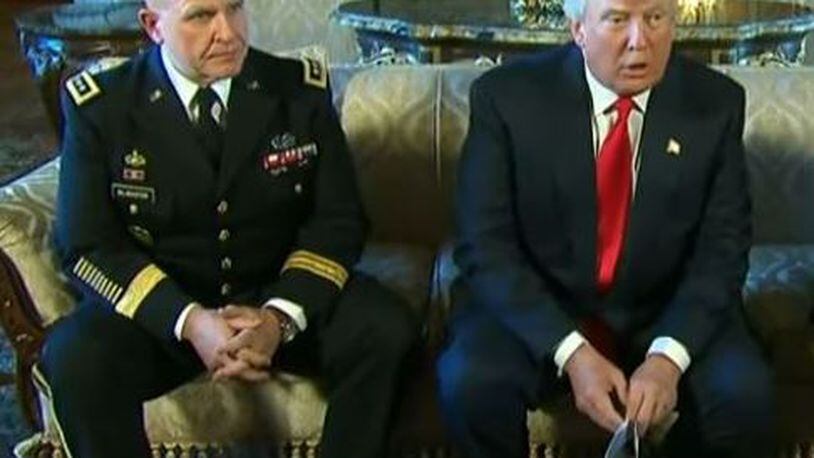But, because President Trump picked an active duty officer who is a three or four-star general, that person must have the Senate vote on a new assignment (that is required by section 601 of Title 10 of the United States Code).
Currently, Gen. McMaster is head of what's known as the Army Capabilities Integration Center - so, he would need a vote by the Senate to transfer his job responsibilities to the White House.
There are other options - McMaster could temporarily take a reduction in rank down to a two-star General, or, he could leave active duty status in the military.
Brent Scowcroft took that last option - retirement - in order to be the National Security Advisor to President Gerald Ford.
Colin Powell was one who decided to stay on active duty, and the Senate in December of 1987 voted to approve his nomination - but there were some who wondered whether that was a good idea.
"Assignment of a military officer to this senior, sensitive position also raises serious questions about civilian control of the military," said Sen. Sam Nunn (D-GA) on the Senate floor. "The Assistant to the President for National Security often enjoys greater access to the President on a day-to-day basis than the senior civilian leadership in the Pentagon."
During that debate, Nunn also floated the idea of passing a law to prohibit active duty officers from serving in that position in the future - in fact, that was the recommendation at the time of the House-Senate investigation into the Iran-Contra Affair, which led lawmakers to worry about oversight for that position.
"The committees recommend that Presidents adopt as a matter of policy the principle that the national security adviser to the President of Unites States should not be an active military officer and that there should be a limit placed on the tour of military officers assigned to the staff of the National Security Council," the Congressional report stated in 1987.
Sen. Tom Harkin (D-IA) had introduced a bill to require Senate confirmation, but that effort never gained legislative traction in 1988.
Fast forward almost 30 years later, and the Senate is being called on again to confirm a high-ranking military officer to the job of National Security Advisor.
Colin Powell was approved on a voice vote, and McMaster seems likely to gain easy approval as well, but there could still be echoes of Nunn and others in the 2017 version of that debate.
No vote was needed on the President's first choice for National Security Advisor, retired Gen. Michael Flynn. He was no longer serving in the military when selected.
About the Author
